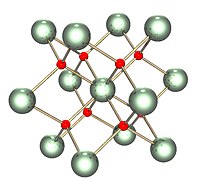
Influence of Lampang pottery stone: local materials in Thailand on C-Q-F ratio, key properties, mullite formation and glaze-body fit of vitreous ceramic sanitary ware
Sign Up to like & getrecommendations! Published in 2019 at "Journal of the Australian Ceramic Society"
DOI: 10.1007/s41779-019-00331-9
Abstract: This study was aimed to investigate the key properties, mullite formation and glaze-body fit of sanitary ware bodies, by using pottery stone from Lampang, Thailand as a substitute for kaolin, feldspar, and silica. Seven samples… read more here.
Keywords: body fit; glaze body; pottery stone; glaze ... See more keywords

Colour and composition characteristics of beige-glazed porcelain from Jingdezhen Imperial Kiln, early and middle Qing Dynasty (18th century)
Sign Up to like & getrecommendations! Published in 2021 at "Ceramics International"
DOI: 10.1016/j.ceramint.2020.12.118
Abstract: Abstract The Jingdezhen Imperial Kiln made unprecedented achievements in the firing of colour glazed porcelain during the Qing Dynasty (1636–1912). Among these, beige-glazed porcelain became an imperial porcelain variety reserved for the exclusive use of… read more here.
Keywords: qing dynasty; imperial kiln; jingdezhen imperial; glazed porcelain ... See more keywords

Deciphering the formation mechanism of ancient Jun wares copper red and blue glazes
Sign Up to like & getrecommendations! Published in 2021 at "Journal of Cultural Heritage"
DOI: 10.1016/j.culher.2021.01.008
Abstract: Abstract Ancient Jun ware glazes were recreated using a triangle ingredients-based approach. The formation mechanisms of different color glazes, especially the copper red and blue, were studied by X-ray diffraction (XRD), X-ray photoelectron spectrometry (XPS),… read more here.
Keywords: blue; formation; glaze; jun ... See more keywords

Brittle to ductile transition of tribomaterial in relation to wear response at high temperatures
Sign Up to like & getrecommendations! Published in 2017 at "Wear"
DOI: 10.1016/j.wear.2017.09.015
Abstract: Abstract The third body formed in a contact between HS25 cobalt-based superalloy versus ceramic under fretting wear (small reciprocating displacements) was investigated. This tribomaterial, commonly called “glaze layer”, was created from nanosized, compacted and sintered… read more here.
Keywords: brittle ductile; glaze layer; response high; ductile transition ... See more keywords

The Effect of Temperature and Milling Process on Steel Scale Utilized as a Pigment for Ceramic Glaze
Sign Up to like & getrecommendations! Published in 2020 at "Materials"
DOI: 10.3390/ma13081814
Abstract: This study is focused on the evaluation of the re-utilizability of scale originated during the steel casting and steel rolling processes as a pigment for glazes. Non-oiled scale with Fe3O4 as the major phase were… read more here.
Keywords: effect temperature; pigment ceramic; process; glaze ... See more keywords